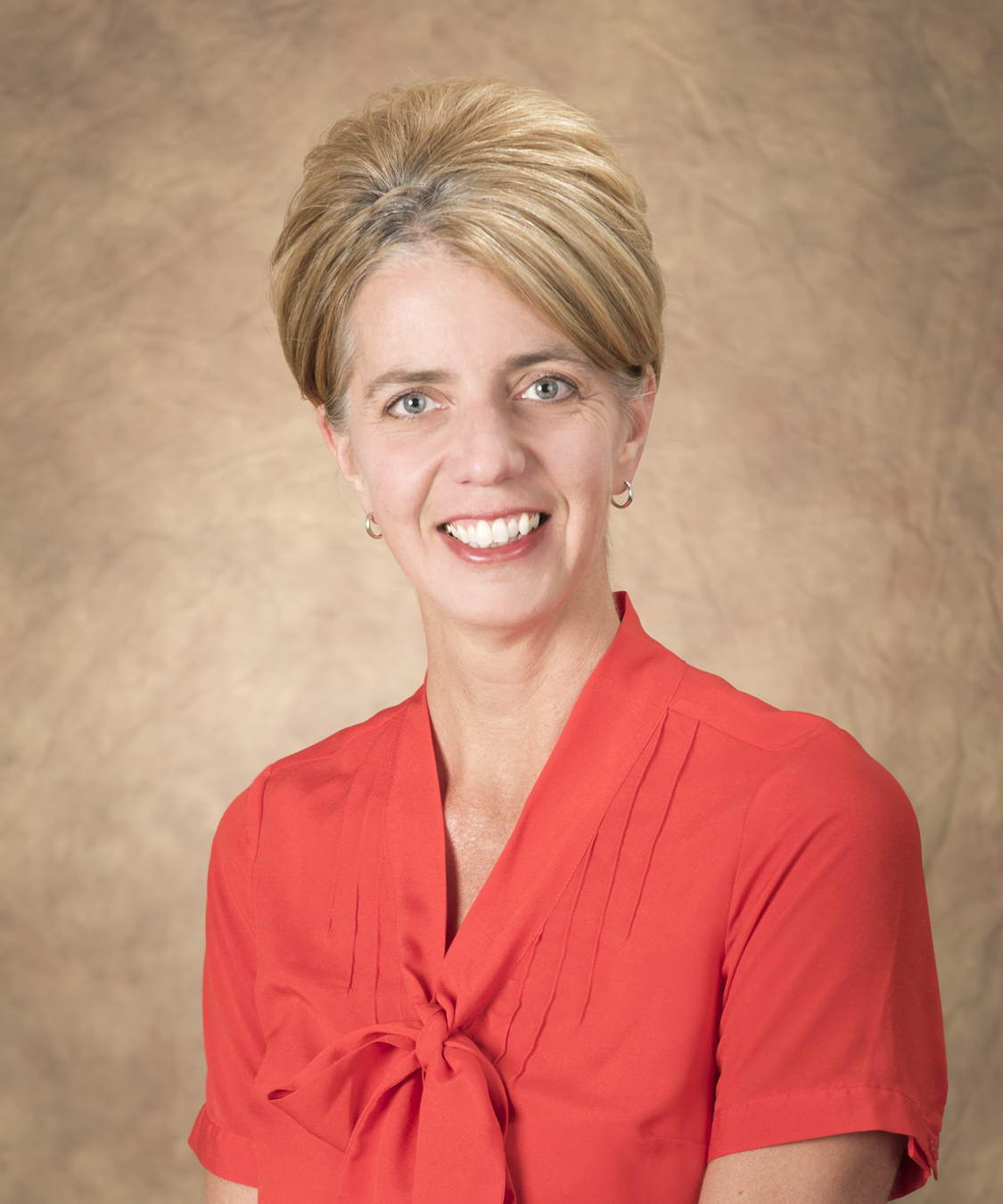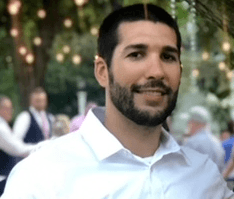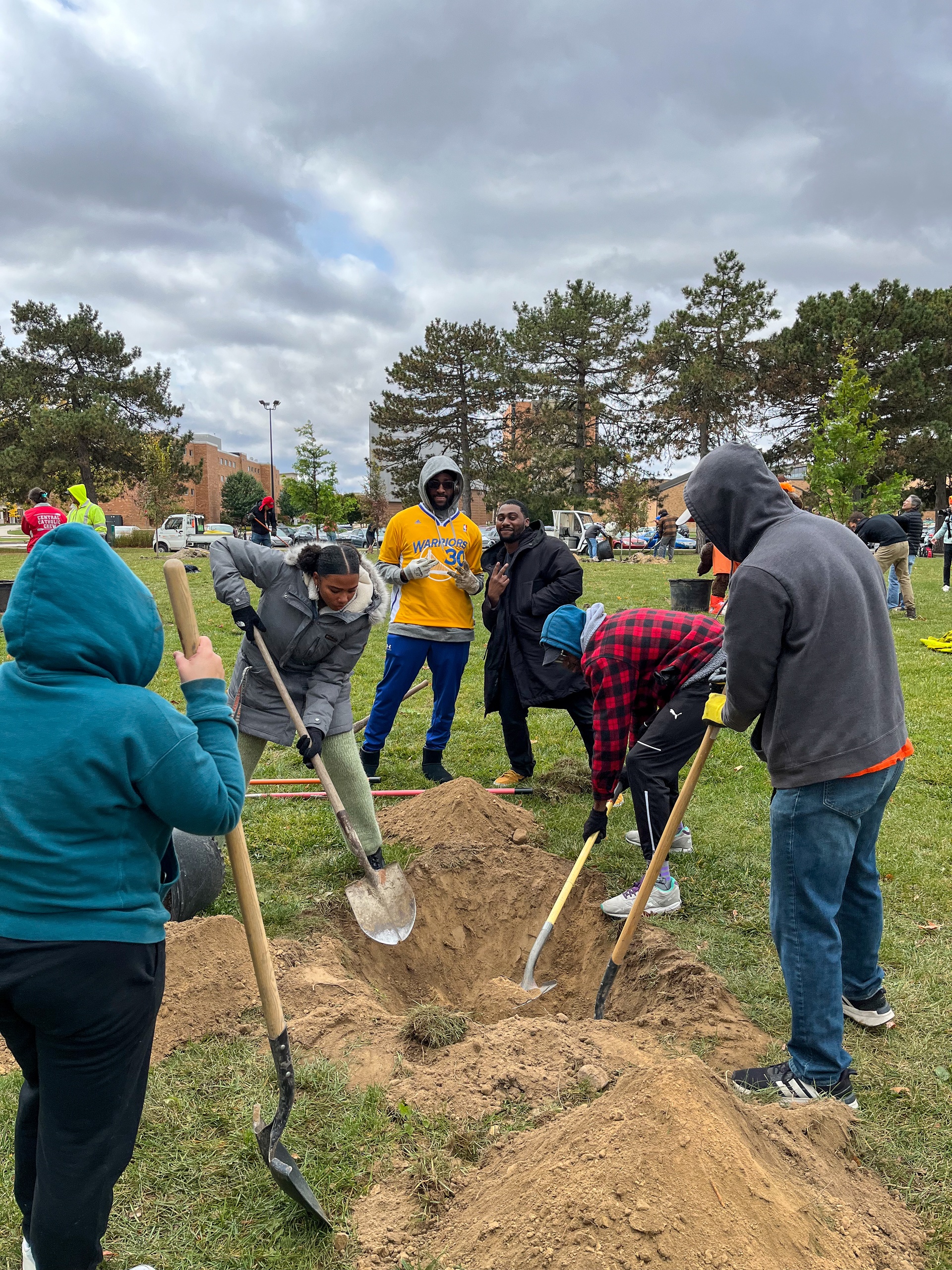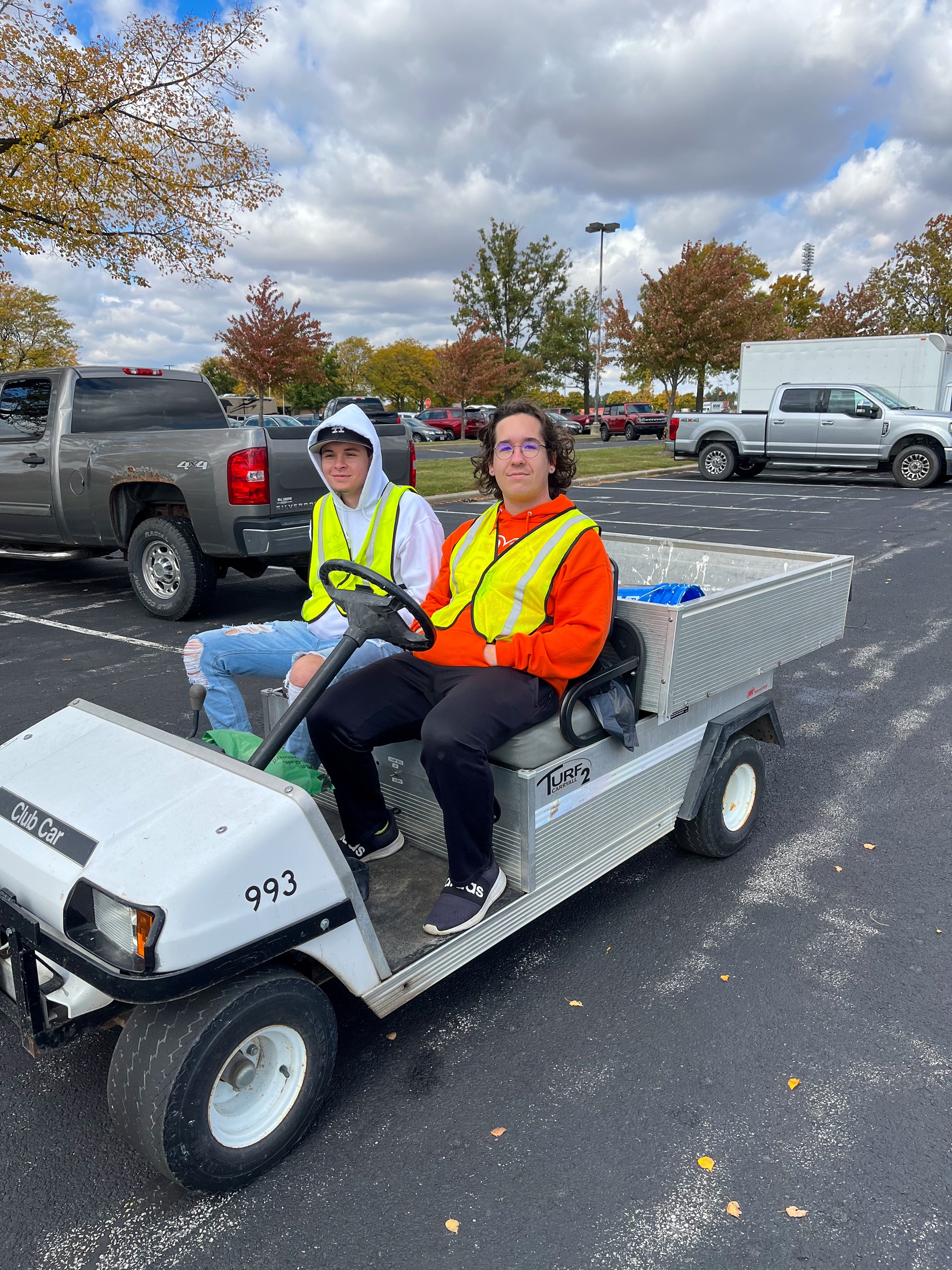Fall 2022 Newsletter

Eco-Hero Spotlight
By: Summer Jordan
The Eco-Hero Spotlight is an initiative started by Campus Sustainability to actively seek out and recognize individuals or groups that make an eco-friendly impact on BGSU. Anyone can be an Eco-Hero, so long as they are willing to do what it takes to promote sustainability.
In this month's newsletter, our Eco-Hero is BGSU’s Lona Leck.
Lona has been a part of the BGSU community for 32 years. She is the Assistant Director for the department of Recreation and Wellness, Marketing and Student Employee Programing.
In her position, Lona works with four BGSU undergraduate students and one graduate student to produce print, social media, photos, videos and other marketing and communication for the department. Some of her other responsibilities include oversight of student employee programming encompassing policies, practices, recognitions and incentives.
Lona practices sustainability both at work, and in her personal life. She believes that practicing a sustainable living is a continuous process that will continue to evolve as our actions continue to impact the environment. “I think very differently today than I did as a youth or a young adult about the environment. If I can make a small difference, leading by example and adopting small changes on a daily basis, it is my hope that my behavior plants a seed in the minds of others to make changes in their lifestyles too”. Her interest in sustainability continues to grow, as David Attenborough has been a huge influence for Lona. She enjoys reading research from notable scientists to learn more about sustainability and the environment. “Bottom line, the Earth's systems are deteriorating rapidly, and we need make significant changes to avoid collapse”.
Lona shouts out Manager of Campus Sustainability, Dr. Nick Hennessy, for his amazing advocacy for all environmentally conscious things at the University. “He is an inspiration and a resource that everyone on campus should leverage”. She believes that BGSU has made major improvements toward campus sustainability during her time here, but there is room for more improvement across campus. Lona is certain that doing things differently requires learning and accepting responsibility for positive change, “Even something as simple as having recycling bins was unheard of 30 years ago but has become standard practice now”. Whether serving in a leadership position on a committee or a member of a campus organization, Lona is always cognizant of making decisions that ultimately protect the environment. She suggests activities that have minimal impact and encourages individuals to reflect on their physical and electronic footprint as it impacts our environment.
In her personal life, Lona does everything in her power to live a sustainable lifestyle. “I know that I'm not anywhere near perfect, but I choose a plant-based diet, try to use less, buy less, recycle what I can, drive less, and avoid fertilizer and pesticides on our lawn and garden, to name a few”. Lona even tired “no-mow May” in which she minimized total mowing and raking in her neighborhood. She is amazed by the improved difference in insect and bird population in her yard.
Green Tailgating, Friday Night Lights, Re-Store. Earth Day, Arbor Day, WYMO/Don't Throw it Out, Recycling, and Green Bike Racks are just a few programs Lona has seen make a positive difference in the BGSU community. She even thinks that the elimination of cars from center campus (Ridge Street area) was one of the best things BGSU has done. She says that moving the cars has allowed for safer walking, skating and biking which has created an amazing synergy by placing priority on the people and the natural space.
In efforts to improve our campus lifestyle and the sustainability of our institute, Lona suggests that every person, and organization should make the environment and climate their number one priority. She even considers that BGSU should enact more impactful policies that would benefit the environment. For example, discouraging the purchase of plastic freebies that would go straight to a landfill. “Having the new school built for the environment provides opportunities for us to think hard and develop the minds of future leaders to focus on the environment as the number one priority. We're training students for jobs of the future such as city planners, construction managers, and others who understand that we have the power to create the world in which we live, and we can make it a very different place”.
Lona would like to share some advice to future generations at BGSU about the environment, “Respect it and protect it! Every single division, department or program, every single instructor, every single staff member and student, can take on the challenge of operating/living in new ways that no longer treat the world as a resource from which we can take but rather as a system in which we play only a small part”.
Thank you, Lona Leck, for being an Eco-Hero and for all that you have done to teach and model sustainability at BGSU.
Where Are They Now?!
By: Summer Jordan
Over the years, many interns have walked in and out of The Office of Campus Sustainability doors. These interns have made major contributions and impacts that have marked successful milestones for the Office of Campus Sustainability. We wanted to know what these interns have been up to and how the work they did as an intern has impacted their lives. Therefore, we started the newsletter series- “Where Are They Now?!”

This October, the Office of Campus Sustainability reconnected with former intern, Kurt Breidenbach.
Kurt graduated from BGSU in 2013 with a Bachelor’s degree in Environmental Sciences. Now, Kurt has an Environmental Health & Safety position with Morgan Advanced Material in Fostoria, Ohio.
Kurt Breidenbach | Orange Bike Mechanic/Coordinator (2010-2013)
Kurt was one of the very first coordinators of BGSU Bike Rental, it was a free bike shack called “Orange Bikes” back then. He helped with the growth of the Orange Bike Program from a small shed, which was attached to the now demolished greenhouse, to our current warehouse bike rental location across from Thurstin Street. Throughout his time working as the bike shop Mechanic, Kurt helped provide sustainable and healthy means of transportation for students around campus. “Between the inventory in the shop and what was on campus, we maintained a fleet of a hundred or so bikes. Shoutout to Alex Hoffman who was instrumental in this process!”
Kurt enjoyed working with Dr. Nick and Alex most while working for Campus Sustainability. “Dr. Nick was very easy to work with, never micro-managed us or the projects we were working on”. One of the most important things Kurt learned while working for Campus Sustainability is the importance of being reliable and following through. “When you’re in a paid position and you say you’re going to show up at 8:00am, you better show up at or before 8:00am”. Kurt has found that in the real world, being reliable and following through on your word is more valuable than having a 4.0 GPA in school.
Kurt recollects some hilarious moments while working in the bike shop. “Dr. Nick may or may not have known this, but Alex backed into the garage door at the shed location back in the day. The next day Dr. Nick was looking right at it, but we never knew if he actually noticed it”. Dr. Nick had no idea until he read this article!
Kurt’s final advice to BGSU students is to utilize your degree in whatever field one may pursue. He says that a 4-year degree is the new high school diploma, and once you’re in your desired field you should look up what certifications are available and start studying for them. “Marry a realtor and start buying rental properties. It helps”.
Do you have any special memories of Campus Sustainability interns? Let us know at Greenbg@bgsu.edu.

Campus Sustainability:
Serving the Environment with Student Projects
By: Zach Hayes and Summer Jordan
Throughout the 2022 fall semester, the Office of Campus Sustainability has been working diligently to not only promote and spread environmental awareness across BGSU but also bring service opportunities to the campus community.
With the kickoff of the fall semester came the “All Campus Picnic” in which the Office of Campus Sustainability collaborated with the Office of the President to make the event completely zero-waste, which means that everything served or generated at the event was either recycled, reused, or composted. The utensils and plates were all made from plant-based compostable materials that were mixed with food waste to later decompose. To eliminate trash cans, we had volunteers attending compost and recycling stations around the University Hall Lawn. This was also the case before the semester started as we also made the Convocation Picnic for incoming first-year students a zero-waste event with volunteers monitoring the waste stations. With the right planning and preparation, any sized campus event can be made to be zero-waste! Contact our office if you would like to do this for your upcoming event.
Another waste reduction event at the beginning of the semester was the Black Swamp Arts Festival weekend where teams of volunteers handled the recycling of cans, bottles, and cardboard at the event. The initiative was made by Environmental Action Group (EAG) students, and in exchange for providing volunteers for the 3-day, they would receive some funding for their club. Thanks to the diligence and hard work of the EAG students, recycling services were able to be managed over the course a weekend that saw thousands of attendees. The biggest obstacle to offering recycling at events with large crowds is the high potential for contamination. Recycling contamination is a common issue that leads to recycling ending up directly in the landfill! In fact, it is estimated by the EPA that the contamination rate is 25% or 1 in 4 items. Therefore, education and our volunteering are essential at events like the Black Swamp Arts Festival.
The first BGSU home football game of the semester saw the return of Green Game Day! GGD is a collaboration between BGSU Athletics and Campus Sustainability to reduce waste at home football games, through the assistance of student volunteers. With their help, as well as the assistance of Grounds staff, we have successfully run the recycling program in the stadium and tailgate areas at every home game this year. During a typical event, we begin our efforts a couple of hours before kickoff. Students pair up and use golf carts to navigate the stadium grounds. Some distribute green recycling bags to tailgaters while others check on and set up clear stream recycling stations around the stadium. The morning crew engages the tailgaters and highlights recycling education as an aspect of the Green Game Day activities. Kids enjoy “feeding the Falcon”, our Falcon-shaped receptable that “feeds” on cans and bottles. Once the game starts, the tailgate cleanup continues until the last volunteer crew of the night takes on the challenge of tearing down the containers and handling the recycling in Doyt Perry Stadium itself. After the homecoming game we filled our entire 30-yard container and are almost done with our second one.
This year, BGSU partook in the Clean Your Streams project, a waterway cleanup initiative hosted by Partners for Clean Streams that engages volunteers from all over the Maumee River Watershed. The event mobilizes over 1,000 volunteers for a day of service in areas all over the watershed. The Office of Campus Sustainability was contacted to be a partner group for the initiative. We organized our own remote cleanup a day early and had student volunteers help us pick up 52 pounds of garbage from around the water features at BGSU’s former golf course. Some of the more interesting finds included a homemade book of prayers and a pair of sweatpants that were growing a plethora of plants (plant pants!). The data collected from our group was combined to the database maintained by the Ocean Conservancy and contributes to the potential lobbying against single-use nonbiodegradable plastic packaging which was the largest category of garbage we picked up.
We spent the duration of a sunny Friday afternoon performing the cleanup and were inspired to hold a follow-up event during the Fall Break after volunteers discovered a large area contaminated with fireworks debris left over from the BGSU homecoming game. Unfortunately, the debris was not picked up by those who launched the fireworks and were then run over by lawnmowers. This microplastic debris took almost 8 person-hours to remove, and even then, there may still be litter out there. Reminder; when hosting an event of any kind, be mindful to “leave no trace” to leave the environment just as you found it!
This semester, the student organization Environmental Action Group (EAG) has been a key asset in collaboration with the Office of Campus Sustainability. Another collaborative project has been the Native Prairie Garden Restoration behind Shatzel Hall. Nine volunteers took advantage of unseasonably warm fall weather on October 22 to remove substantial amounts of weeds and grass that had overtaken the garden to prepare it for new native plants to be introduced to the garden in Spring 2023. Campus Operations/Grounds and Campus Sustainability supplied the tools and are working on designing new signage for the garden.
The popular tree planting event made its way back on the roster of events during this year's Campus Sustainability Week. Participants had the opportunity to help plant seven new trees in the lawn near Kreischer. The benefits of trees are numerous! They purify the air on campus, produce oxygen, prevent soil erosion, mitigate runoff, and promote water absorption, removed carbon from the atmosphere, provide habitat for birds, insects, and squirrels, and simply just make campus a more lovely place to be.
The new volunteer opportunity platform, BGSUServes has been instrumental in connecting students with our events. It is easy to make an account and connect with us on BGSUserves to stay updated on our latest volunteer offers. To date, our office has had over 150 different students assist in more than 300 hours of community service. We appreciate all the helping hands and look forward to many more events to come!
Sustainability Week Recap
By: Zach Hayes
October is Campus Sustainability Month and BGSU’s Office of Campus Sustainability put together a week of events from October 15-21. Students were able to participate in service and education-based events in conjunction with hundreds of other universities both domestic and abroad.

Campus Sustainability Week’s kickoff was the home football game versus Miami. While the Falcons were earning our hard-earned victory on the field, our team of 34 student volunteers were at Doyt Perry Stadium volunteering for Green Game Day (GGD). Students teamed up to handle recycling all the cans and bottles generated by the tailgates during the game and inside the stadium. This was the fourth successful GGD of the semester, and our efforts have almost achieved the complete filling of our second 30-yard dumpster of bottles and cans for the fall season. Waste diversion efforts are a key part of the BGSU Climate Action Plan’s emission reduction goal and GGD has been a successful program since its inception in 2011.
Sustainability Week began with a guided tour of the hidden sustainability measures built into The Oaks Dining Center & Green Roof. Dr. Nick Hennessy of Campus Sustainability and Nicole Laws of BGSU Dining led the group on the aspects that warranted the building’s LEED Gold Certification. LEED stands for “Leadership in Energy and Environmental Design” and accreditation is based on meeting sustainable construction criteria. As of this article, BGSU has 13 LEED certified buildings. When you look at a building, you are looking at the culmination of all the energy, materials, and finances that went into the structure. The Oaks Dining Center was built in 2009 with the idea that intentional construction planning would mitigate as many of the negative impacts as possible. For many buildings, emissions from the construction phase are equivalent to two decades or more of operational emissions. The tour highlighted the re-purposing of construction wastes, energy reduction measures, rainwater utilization for non-drinking uses, and the Teaching Kitchen’s indoor hydroponics system. Although the weather was cold and rainy, we were also able to tour the green roof. The Oaks’ green roof is made of repurposed materials and plants perform several ecological services like reducing water runoff and keeping the building temperature consistent year-round. Participants were also brought down into the dining center and taught about the many plant-based food options and how to make healthy food choices.
Tuesday saw the screening of the film Triple Divide REDACTED, a documentary about fracking and the negative effects on the water quality in a community in Pennsylvania. The award-winning film features current BGSU professor in the School of the Earth, Environment & Society, Dr. Andy Kear, and is an eye-opening exposé on how governments and corporations may sacrifice the health of people to protect their own interests. He was present at the screening to conduct a Question-and-Answer session with the audience. The film was only 53 minutes, and it was clear that the audience was interested the entire time and the discussion continued even as everyone filtered into the hallway.
Wednesday brought together students from all over campus to plant seven new native trees in the Alumni Mall just south of the basketball courts by Kreischer. Seventeen students and even Freddie and Frieda Falcon took part in the fun. Despite the chilly weather and rocky soil, the trees were planted in less than an hour. We planted sweetgum, 3 dawn redwoods, and 3 frontier elm trees. Trees are an important part of BGSU’s Climate Action Plan because they offset carbon emissions on campus.
Wednesday evening was our guest lecture by a faculty member from the School of Earth, Environment, and Society (SEES), Dr. Angélica Vazquez-Ortega. She presented her ongoing research on the viability of using dredged sediment from Lake Erie as fertilizer for farm soils. When funding is available, the dredging of the Toledo Harbor at the mouth Maumee River is normally conducted by U.S. Army Corps of Engineers. Dredging ensures that sediments are removed so that harbor depths are maintained and usable by large ships. Dr. Vazquez-Ortega's presentation entitled Lake Erie Sediments: Helping Farm Soil Health Restoration, informed us of the work being done to see if this dredged sediment can be used on farm soils to serve as an organic fertilizer and re-introduce stable amounts of phosphorus, nitrogen, and other compounds to farms. By adding dredge to the soil, there is potential to eliminate the need to use synthetic fertilizer on farmland which could reduce the size and scope of harmful algal blooms in Lake Erie. There is a recording of the presentation that was made which can be shared by emailing Campus Sustainability Graduate Intern Zach Hayes at zmhayes@bgsu.edu. At the end of the presentation there was time for the audience to ask questions about her research.
Thursday was the re-opening of the Campus ReStore to much fanfare. It is estimated that around 300 people came to the event. With a small “cover charge”, everyone is welcome to take what they need, within reason. Certain items were an exception such as mini-fridges and microwaves. We also had a sustainable craft table near the entrance where people could make their own powdered laundry detergent. We accept donations of items year-round and plan to host the next open house of the ReStore sometime in November (stay tuned). The ReStore also routinely provides clothing, school supplies and many other items to local charities and shelters all year round.
The last event of Campus Sustainability Week was the return of Friday Night Lights. We had twenty-four volunteers come and break into 6 teams to be sent out to 8 academic buildings. For Campus Sustainability Week, we hid “Spooky Falcons” in each of the buildings and saw who could find the most as they completed their mission. Two teams found 6 out of their 7 Falcons and returned within 3 minutes of each other. In the first week back for Friday Night Lights, we accomplished turning off over 1300 lights and saved over $700 in energy.
Campus Sustainability Week 2022 was a remarkable success that engaged over 425 students and faculty from the BGSU community over the course of our weeklong programs. BGSU remains committed to our Climate Action Plan and commitment to becoming carbon neutral. We want to thank everyone that participated in CSW ‘22 and look forward to furthering sustainability initiatives, events, and education over campus.
Sustainability Questions & Suggestions
Do you have any questions, comments, concerns, or suggestions related to sustainability? If so, feel free to contact us at greenbg@bgsu.edu. Alternatively, you can reach us on Facebook, Twitter, or Instagram @GreenBGSU.
We look forward to hearing from you!
Like staying up to date on all of BGSU's sustainability updates? Be sure to subscribe to this newsletter to get it sent to your email inbox each month!
Subscribe to Our Newsletter.
Updated: 01/19/2024 01:02PM

























.jpg/jcr:content/renditions/kraken-small.jpg)